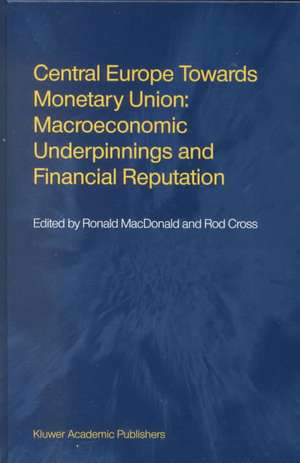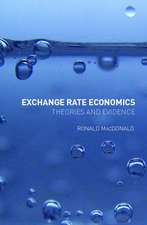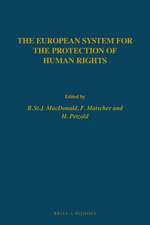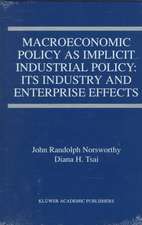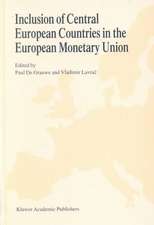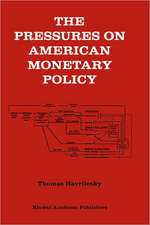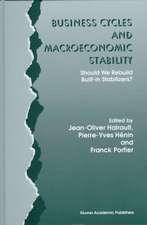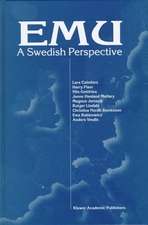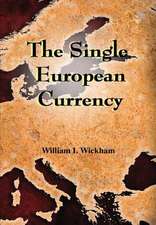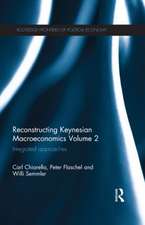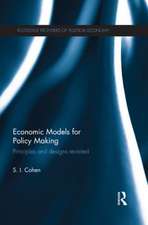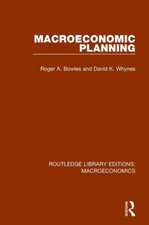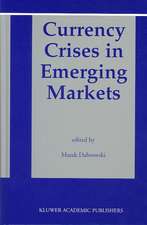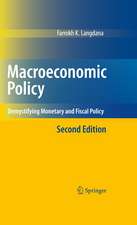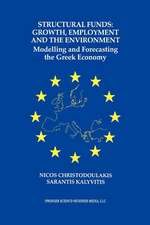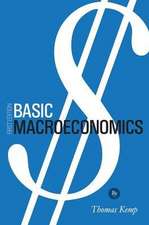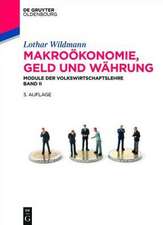Central Europe towards Monetary Union: Macroeconomic Underpinnings and Financial Reputation
Editat de Ronald MacDonald, Rod Crossen Limba Engleză Hardback – 30 dec 2000
| Toate formatele și edițiile | Preț | Express |
|---|---|---|
| Paperback (1) | 944.67 lei 6-8 săpt. | |
| Springer Us – 4 noi 2012 | 944.67 lei 6-8 săpt. | |
| Hardback (1) | 950.52 lei 6-8 săpt. | |
| Springer Us – 30 dec 2000 | 950.52 lei 6-8 săpt. |
Preț: 950.52 lei
Preț vechi: 1159.17 lei
-18% Nou
Puncte Express: 1426
Preț estimativ în valută:
181.87€ • 189.91$ • 150.19£
181.87€ • 189.91$ • 150.19£
Carte tipărită la comandă
Livrare economică 15-29 aprilie
Preluare comenzi: 021 569.72.76
Specificații
ISBN-13: 9780792379676
ISBN-10: 0792379675
Pagini: 283
Ilustrații: VII, 283 p.
Dimensiuni: 155 x 235 x 18 mm
Greutate: 0.59 kg
Ediția:2001
Editura: Springer Us
Colecția Springer
Locul publicării:New York, NY, United States
ISBN-10: 0792379675
Pagini: 283
Ilustrații: VII, 283 p.
Dimensiuni: 155 x 235 x 18 mm
Greutate: 0.59 kg
Ediția:2001
Editura: Springer Us
Colecția Springer
Locul publicării:New York, NY, United States
Public țintă
ResearchDescriere
A key objective of the Central European Economies (CEE) on their transition path from planned to more market-oriented economies has been membership of the European Union (EU). The start of Economic and Monetary Union (EMU) in 1999 has added membership of the EMU to the agenda for the CEEs. The task of the so-called Visègrad countries (the Czech and Slovak Republics, Hungary and Poland) of preparing for EU and EMU membership is the key theme underlying the papers contained in this volume. There are many issues to be resolved before the Visègrad countries are admitted into the EU, and this volume focuses on the issues relating to macroeconomic policies and financial sector structures. The chapters of Central Europe Towards Monetary Union: Macroeconomic Underpinnings and Financial Reputation contain new theoretical and empirical results and also comprehensive institutional overviews. The intended readership of the book is policy makers and economists working in the academic and financial sectors.
Cuprins
1 Introduction.- 2 Macroeconomic Policy and Institutions During the Transition to European Union Membership.- 3 Real Exchange Rate Behaviour and Resource Allocation in the Visegrád Four.- 4 Monetary Control on the Path to EU and EMU Membership.- 5 Impact of Capital Inflows into the Czech Republic and Policy Responses.- 6 Reforms and Development of the Banking Systems in Transition Economies.- 7 Financial Fragility, or What Went Right and What Could Go Wrong in Central European Banking.- 8 Bond Markets in Advanced Transition: a Synopsis of the Visegrád Bond Markets.- 9 Market Structure, Return Dynamics and Efficiency of the Visegrád Stock Markets.
